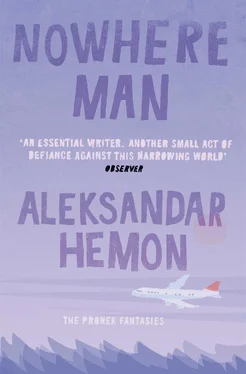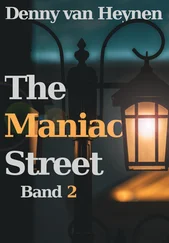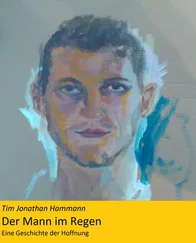He grabbed a pierogi and devoured it.
“Always is sure,” he said.
“Sure,” I said, and laughed, with a gurgle of pleasure, for we had already acquired an inside joke. He stood up with the tray and said: “See you later, alligator.” I resisted an urge to follow him, studying instead the differently shaped grease blotches on the table, and their relation to the straight lines that ran across the table — the configuration all made sense then, as if it had been a coded message. I looked at Vivian. “Hi,” she said, in a whispery voice, and nodded as if to confirm that she really meant it.
Vivian was a graduate student too, but in Slavic languages — she spoke five of them, including Ukrainian. She was in school in Madison. She told me there were other Americans here, and pointed vaguely toward the undiminished food line. There was Will, who was a tennis player, he was from Somewhere, California. And there was Andrea, who was from Chicago. And there were Mike and Basil, who never had breakfast. Vivian would punctuate the end of every sentence with a nod, and an occasional tucking of her hair behind her ear, on which a fence of rings stretched across her earlobe. I could not see her eyes, because she kept looking down at her plate. She had a shirt with a sunflower pattern, with a wide, open collar, which exposed her chicken chest and the slight curves of her breasts. She told me that this place was okay , that she spent a lot of time in the library here, that we were all going to take a train to Lvov tomorrow, early in the morning, and stay in Lvov for a couple of days. I complained about not being informed about it, allowing for some good old-fashioned solidarity of Americans in a hostile foreign country, then took off, having made up my mind to spend the rest of the day sleeping. Good night, lady, good night, sweet lady, good night, good night.
We all got up at the crack of dawn — Jozef had shaken me out of my weighty slumber — picked nocturnal crud out of our eyes, then crawled into a bus stinking of harsh cigarettes and machine oil. The bus took us to the train station, down the same desolate streets that I had roamed yesterday, which created a profound sense of moving in circles, even if there was a wobbly morning worker here and there. A statue of Lenin or a socialist hero ambushed us from behind every corner, invariably leaning forward, implying a future. I wanted to point out those things to Jozef, who was a few seats away from me, too far for conversation, close enough to be aware of me.
The train station was swarming with citizens dragging their overstuffed bags and underfed children, anticipating torturous departures. There is a history in all men’s lives, figuring the natures of the times deceased. Pensive and ponderous I was indeed, squeezed in the middle of an alien rabble — a fog of garlicky sweat and exhaustion wafting about us. “Look on us, we are like salt going out of hand,” Jozef said. I envisioned identical grains of salt, slipping out of God’s furrowy palm. It was humbling, to say the least.
The train was much too salty: the Soviet masses everywhere, wearing the expression of routine despair: women with bulky bundles huddled on the floor; stertorous men prostrate up on the luggage racks; the sweat, the yeast, the ubiquitous onionness; the fading maps of the Soviet lands on the walls; the discolored photos of distant lakes; the clattering and clanking and cranking; the complete, absolute absence of the very possibility of comfort. I thought that if another revolution were ever to break out in the USSR, it would start on a train or some other public transportation vehicle — the spark would come from two sweaty asses rubbing. I survived the prerevolutionary grappling only because I followed Jozef, who cheerfully moved through the crowd, the sea of bodies splitting open before him. We found some standing space in the compartment populated solely by our schoolmates — the only ones I recognized were Vivian and Vladek.
There was Father Petro — whom Jozef called Father Petrol — a young, spindly, pimply Canadian priest, who kept touching his left tit as he spoke. I could easily see a future in which Father Petrol’s parish, somewhere deep in the Canadian Western provinces, was in a community-tearing upheaval, after Father Petrol had been caught innocently fondling a gentle boy. There was Tolya, a teenager from Toronto or some such place. She used every chance to press her melons against Jozef, who endured the assaults with a bemused, avuncular expression. Vladek, the man with a “Komsomol face” (Jozef) — wide-open eyes, freckles, and an impish lock on his forehead — kept hugging Tolya, trying to pull her away from Pronek, sharing his bottomless vodka flask with her and anyone interested, including myself. Priggish and prudish though I may have appeared, I had a few hefty gulps that scorched my throat and earned me approval from the mob and a smile from Jozef. There was Andrea, the Chicago woman, with whom I avoided eye contact, for I did not want to detect any common acquaintances, and she played along. Like all tourists, we wanted to believe that we were alone among the natives. Jozef kept glancing at her, and his upper lip teetered on the verge of a seductive smile. There was Vivian, sitting in the corner, refusing drinks, and, incredibly, trying to read, which she eventually abandoned for talking to Father Petrol about — as far as I could discern — martyrs and saints. In the next compartment — I peeked in, hoping against hope that there would be seating — there was Will, with two other guys who looked American in their flannel shirts and an assortment of traveler’s gadgets: backpacks rife with pockets, pouches pendant on their necks, digital wristwatches with an excess of useful little screens.
Needless to say, windows could not be opened, and within a couple of hours moisture painted pretty sparkling pictures on the panes; the walls were sticky; my skin was itchy and I kept gasping for air. The train was speeding through a misty forest, through an army of parallel trees visually echoing the tranceful clatter. Then the train slowed to a stop in the middle of a ravine. In total silence, the trees around the ravine loomed over a couple of brawny does grazing.
“It is beautiful,” Jozef said.
“Yeah,” I said.
“How can you kill them? I don’t understand?” Jozef said.
“I don’t either,” I said.
The does looked up at us as if aware we were talking about them. Jozef said nothing, but raised his hand slowly and waved at them. One of them made a little step forward, as if trying to see us better — I swear to God the does knew we were watching them, they did see him waving at them. It seemed like a natural, ordinary gesture, just a simple motion of the hand. I did not dare do it, because I realized Vivian was looking at me, and I was embarrassed. The train moved on, the clatter accelerated, and the does turned their butts toward us and galloped away. Jozef and I stood wordless for an hour or so, our backs pressed against the damp coldness of the pane. I often recall that moment (the moist morning mist, the collective clamminess; the mirth of Jozef’s body, etc.), and I am forced to own up to the fact that I had never had — and then lost it again — what Jozef had: the ability to respond and speak to the world. Then it was Lvov, and we disembarked from the train together, stepping into a nipping, eager air. We inhaled deeply, simultaneously, as if holding hands. What country, friends, was this?
It was in Lvov that Will the Tennis Player fully entered my field of vision. He stood in front of the glum Lvov train station, with his arms akimbo, giving assured directions to the random somnolent sojourner. He had piercing blue eyes, sinewy tennis arms — his right asymmetrically thicker than his left — and the squat, sturdy body of a Ukrainian peasant, no doubt the sludge from his ancestors’ genetic pool. Quickly did I succumb to his wise leadership — he led me and Vivian and Vladek and Tolya and the others toward a bus identical to the one that transported us in Kiev. I took a window seat, and looked out, when Jozef slumped his body next to me. In front of us, Vladek was telling a lame joke in lamentable English to Vivian, who managed to produce a gracious giggle.
Читать дальше












